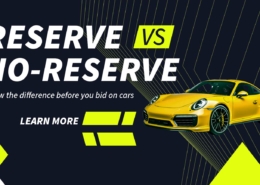 https://auction.ridesafely.com/images/2018/10/banner-truck-auctions-for-everyone.jpg
865
1440
RideSafely
/images/2025/01/ridesafely-logo.svg
RideSafely2025-09-26 12:10:232025-09-26 14:53:10How to Buy Your Next Truck at an Auto Auction
https://auction.ridesafely.com/images/2018/10/banner-truck-auctions-for-everyone.jpg
865
1440
RideSafely
/images/2025/01/ridesafely-logo.svg
RideSafely2025-09-26 12:10:232025-09-26 14:53:10How to Buy Your Next Truck at an Auto AuctionBuying a car is always exciting. Whether you are purchasing an automobile for the first time or simply looking for a replacement, there are plenty of factors you need to consider before pulling out the checkbook. These factors – amidst others – include budget, model, engine capacity, space, and durability.
Based on your requirements, if you are looking to buy a used automobile, you will almost always do it either through a car auction or from a private seller. Both options are highly popular across the US, with their distinct sets of salient benefits but also their separate downsides.
By assessing the pros and cons of either alternative, you can make an informed choice that is aligned with your needs and demands.
Auction
An auction is a public sale that is organized by an outsourced auctioneer or estate agent. On the day of the auction, you, along with all the other potential buyers, will gather at a predetermined location to place your bids for the vehicles on offer. The highest bidder for each item will, of course, become the new owner of that item.
Advantages of buying a car through auction:
- Price: Participating in auctions is hard work compared to buying a car privately or through a dealer. However, you are compensated for that extra effort through amazing value for money. The prices at an auction are, on average, approximately 30% less than the prices you will get with a private sale or a dealership. Moreover, many cars, especially government vehicles and fleets, are in excellent condition, maintained as per industry standards. You might also be able to hit the jackpot and land a new or almost-new repossessed car.
- Variety: With a remarkable collection of vehicles, an auction has something for almost every buyer. With vehicles such as economy cars, commercial vehicles, SUVs, and trucks, an auction gives you the best shot of getting a car that fits the bill, and that too at bargain prices. Whether you want a second-hand car in a decent condition or a wreck which you can break down and sell for parts, it is highly unlikely that you will return disappointed from an auction.
- Fast Turnaround: You will usually find that automobile auction traders are looking to make quick deals. So, if you do not mind a bit of online research, you will not only be able to find a suitable vehicle choice – right down to the mileage and year of manufacture – but also check if and where that particular vehicle is available nearby. Armed with this information, you will know which auction(s) to attend and start bidding on your car of choice right away.
Disadvantages of buying a car through auction:
- No test drives: With an auction, there is no possibility of trying before buying a vehicle. Even though you can know a great deal about your preferred car from a visual assessment and the automobile’s condition report, not being able to test-drive does leave you open to some exposure.
- No warranties: This is one area where car dealers have the edge over auctions and private sellers. Auction sales are generally considered to be ‘as is,’ although, if you are lucky, you might come across a seller offering a grace period without any extra charge. Or you might be able to find a government vehicle or fleet, which might be covered by a guarantee. If you are willing to, you can always buy your own warranty.
- Shady background: Not every vehicle at an auction has a favorable history. Often, cars that end up in an auction were previously reported stolen and are now being offloaded by law-enforcement authorities. However, most auction centers do disclose such information to the purchasers. Also, nowadays, you can always surf the internet to learn a particular vehicle’s history.
Private Sale
A private seller is someone who wants to sell a car that they own. In order to maximize the value they get, private sellers normally handle the complete selling process.
Advantages of buying a car from a private seller:
- Well-maintained cars: In most cases, at least, car owners only look to sell their vehicles privately when the service and maintenance records are up to the mark. For this reason, such diligent sellers are unwilling to enter auto dealerships because they believe that the dealer will greatly undervalue the vehicle’s worth. So, with a private seller, there is a high possibility that you will be able to get a car which is in a desirable condition.
- More affordable, compared to dealership cars:A dealer must cover costs that a private seller does not need to. These costs could include advertising, middleman’s commission, administrative costs, and costs associated with reconditioning the automobile. For this reason, not only does a private seller provides prices that cannot be matched by any dealer, but a private seller is also more open to negotiating.
- Quicker transaction, compared to dealerships: While dealers are looking to milk the best possible outcome from a deal, private sellers are keener to complete the transaction as soon as they find a buyer with genuine interest. Private sellers who sell in the market usually follow brief rounds of negotiations. They are aware that too much rigidity might push a buyer away towards a competitor who is only too willing to offer good value for the buyer’s money.
Disadvantages of buying a car from a private seller:
- You do not know the seller: A private seller offering you a used car is a stranger, and that might put you in a vulnerable spot. That stranger will arrange a rendezvous where you will test the car, inspect it, and work with him on the deal. If you know close to nothing about the person you are going to be dealing with, it could prove to be dangerous. For this reason, it is recommended that you meet the seller in a public place, surrounded by plenty of people, to avoid an unexpected and even a possible threatening situation.
- No warranties: Just like with auctions, private deals do not give you the satisfaction of a warranty or even a certificate for the vehicle they are selling. It is entirely up to the seller to make sure that the car is in a satisfactory condition. If getting a warranty is your topmost priority, you should consider purchasing your car from an auto dealership, since they are required to provide a guarantee by law.
- Seller does not handle vehicle registration: Dealing with after-sale documentation, including the title of transfer and registration, will be your responsibility. Unlike a dealer, a private car seller will not indulge in DMV-associated hassles.
To conclude, there is no perfect or correct mode of buying a vehicle. At the end of the day, it all comes down to your stipulations,priorities, comfort, and getting the best value for your money. Hopefully, this article will act as an effective guide for you in determining which procedure works best for you.
Tweets by @RideSafely
[sr site=”tw” type=”carousel” id=”RideSafely” options=”minWidth:130,numItems:2,count:5,length:150,hideReplies:true”]







Leave a Reply
Want to join the discussion?Feel free to contribute!